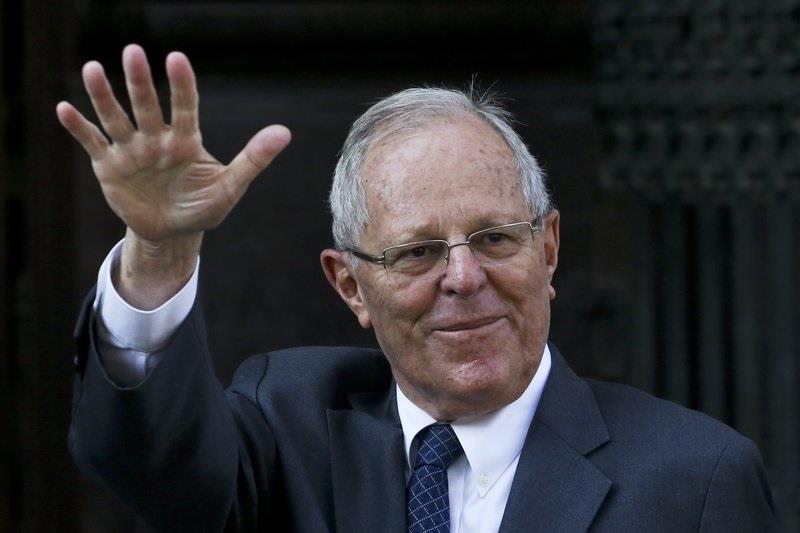LIMA, March 21 (Xinhua) -- Peruvian President Pedro Pablo Kuczynski submitted his letter of resignation to lawmakers on Wednesday, a day ahead of a scheduled vote on whether or not to impeach him.
In a nationally televised address, Kuczynski said he was unable to govern effectively due to the persistent allegations of corruption that have dogged him since his first months in office.
"Faced with this difficult situation that unfairly makes me appear guilty of actions in which I did not take part, I think it is best for the country that I resign as president of the republic," said Kuczynski.
"I do not want to be an obstacle to the unity and harmony the nation needs so badly," he said, adding his resignation ensures "an orderly constitutional transition."
His resignation follows widely circulated videos of the president's political allies appearing to be buying the votes of lawmakers in the lead-up to Thursday's congressional impeachment hearing.
The businessman-turned-politician took office in July 2016, but was soon engulfed by accusations that he profited from a multinational bribery scheme operated by Brazilian construction giant Odebrecht to win lucrative government public work contracts back in the early 2000s.
The Congress first held an impeachment vote in December 2017, but the opposition-backed initiative failed to garner sufficient votes.
The initiative alleged that Kuczynski's Miami, Florida-based company Westfield Capital provided consulting services to Odebrecht while he was minister of economy and finance, and chief of staff, during the administration of ex-president Alejandro Toledo.
Peru has requested Toledo's extradition so he can stand trial for allegedly accepting millions in bribes from Odebrecht.
Peru's judicial branch called for "reciprocity" from the United States on Wednesday when requesting the extradition of Toledo, according to the state news agency Andina.
"I think we must ask U.S. authorities for reciprocity, because when they send us an extradition order, especially for drug trafficking, we don't take more than three months," said Duberli Rofriguez, president of the judiciary.
